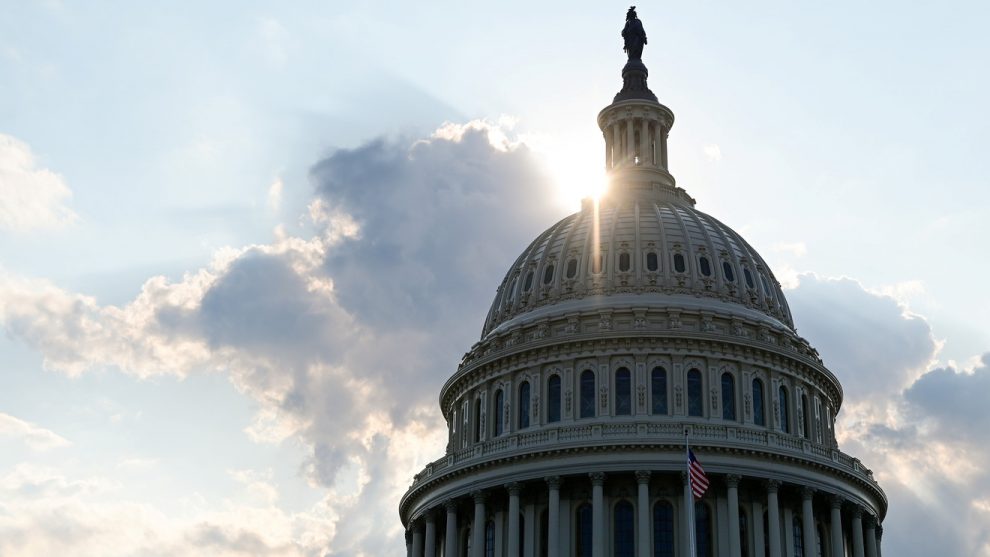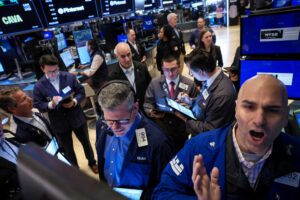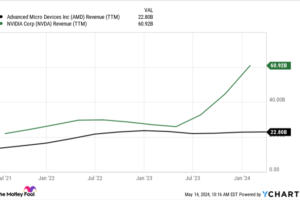
The CEOs of four of the world’s largest and most influential tech companies are scheduled to testify Wednesday before a House antitrust panel, and they plan to emphasize how their products better American lives and jobs.
Jeff Bezos of Amazon.com Inc. AMZN, -1.79% , Tim Cook of Apple Inc. AAPL, -1.64% , Mark Zuckerberg of Facebook Inc. FB, -1.44% and Sundar Pichai of Google parent Alphabet Inc. GOOGL, -1.68% GOOG, -1.95% will appear via videoconference starting at noon Eastern.
The House Judiciary Antitrust Subcommittee is expected to grill the executives — who have never appeared before lawmakers together — over their business practices and influence over consumers’ lives.
According to prepared statements released Tuesday night, here’s what each will say:
Jeff Bezos
Bezos’s opening statement is heavy on personal anecdotes, with stories about how his parents and grandparents influenced him. On his grandfather: “He taught me that you can take on hard problems. When you have a setback, you get back up and try again. You can invent your way to a better place.”
Bezos emphasizes Amazon’s focus on customer service. “By focusing obsessively on customers, we are internally driven to improve our services, add benefits and features, invent new products, lower prices, and speed up shipping times — before we have to. … Not every business takes this customer-first approach, but we do, and it’s our greatest strength.”
He cites positive poll numbers for the Amazon brand, and notes Amazon’s billions of dollars of investment in the U.S. and its massive workforce, including stories about an Amazon worker and a third-party sellers.
As for competition, he says “there’s room in retail for many winners,” noting competitors such as Walmart, Target and Costco, as well as startups such as Shopify and Instacart. “The range of retail competitors and related services is constantly changing, and the only real constant in retail is customers’ desire for lower prices, better selection, and convenience.” Left unsaid is Amazon’s 49% market share of online retail spending, as of 2018.
Bezos also says his company is not above scrutiny.
“I believe Amazon should be scrutinized. We should scrutinize all large institutions, whether they’re companies, government agencies, or non-profits. Our responsibility is to make sure we pass such scrutiny with flying colors,” he writes.
Bezos closes by praising the late Rep. John Lewis and saying that despite the challenges the country currently faces, from racial inequality to coronavirus to climate change, “I have never been more optimistic about our future.”
Tim Cook
Cook starts his statement by also praising Lewis and his legacy. He skips any personal anecdotes, and jumps right to the point, saying “Apple is a uniquely American company whose success is only possible in this country.”
He says that Apple is focused on making the best products, not necessarily the most, and that its focus is always on the customer. Cook points to one saying by co-founder Steve Jobs: “We only make things that we would recommend to our family and friends.”
Cook notes Apple customers’ high satisfaction with their products, saying that is “the best measure” that the company is on the right track.
He says Apple does not have a dominant market share in any category, and notes the “fiercely competitive” smartphone market features rivals such as Samsung Electronics, LG Electronics, Huawai and Google.
As for the App Store — the focus of many of the antitrust complaints and the source of roughly $15 billion a year, taken from a 30% cut of sales — Cook says app developers “set prices for their apps and never pay for ‘shelf space.’”
“For the vast majority of apps on the App Store, developers keep 100% of the money they make,” he says, claiming that for apps that are subject to commissions, Apple’s fees are cheaper that software distribution before the development of the App Store. That may be a bit misleading, since Apple requires consumer apps to feature in-app sign-ups and payments, so Apple can take a cut — a policy that email startup Hey recently got into a huff about.
Cook boasts that Apple’s ecosystem has helped create nearly 2 million jobs in the U.S., and contributed to half a trillion dollars in worldwide commerce in 2019 — “nothing short of an economic miracle.” He also notes Apple’s investments in education and its commitment to privacy.
Cook calls scrutiny “reasonable and appropriate” and says the company is approaching the hearing “with respect and humility,” though he says “we make no concession on the facts.”
“I share the subcommittee’s belief that competition is a great virtue,” he says, “that it promotes innovation, that it makes space for the next great idea and that it gives consumers more choices.”
Mark Zuckerberg
Zuckerberg lays out his statement like a grade-school essay, organized under eight sections.
“Facebook is part of an industry that has changed the world,” he says in his introduction. “I’m proud that we stand for American values like giving every person a voice and expanding access to opportunity.”
He says that Facebook competes globally, and that “Our story would not have been possible without U.S. laws that encourage competition and innovation. I believe that strong and consistent competition policy is vital because it ensures that the playing field is level for all.”
He also emphasizes that “Facebook is a proudly American company,” but warns that there’s “no guarantee our values will win out. For example, China is building its own version of the internet focused on very different ideas, and they are exporting their vision to other countries.”
As for its acquisitions — a main point of antitrust contention — Zuckerberg says they have helped drive innovation. “Acquisitions bring together different companies’ complementary strengths,” he says. “The end result is better services that provide more value to people and advertisers, which is a core goal of Facebook’s acquisition strategy.”
Zuckerberg also skews a bit off-topic. “I know our primary goal at this hearing is to talk about antitrust and competition issues, but with four major tech CEOs appearing before Congress, we also have an opportunity to talk about how technology can better serve society. … I hope at least some of today’s hearing will touch on the future, and how our collective scale and resources could be harnessed to help people and businesses.”
He concludes on a slightly defensive note: “As I understand our laws, companies aren’t bad just because they are big. Many large companies that fail to compete cease to exist. This is why we’re focused on building and updating our products to give people the best possible experiences. … . I’ve long believed that the nature of our industry is that someday a product will replace Facebook. I want us to be the ones that build it, because if we don’t, someone else will.”
Sundar Pichai
Pichai, an immigrant from India, starts off on the subject of opportunity, both personally and globally. “At its heart, a discussion about competition is a discussion about opportunity,” he says.
“Our work would not be possible without the long tradition of American innovation, and we’re proud to contribute to its future,” he says, noting Google’s 75,000 U.S. employees and estimated $20 billion in U.S. investments in 2018, and that the tech giant has been among the top five U.S. investors over the past three years.
Pichai uses personal stories of Google users, and how its products help individuals and Main Street businesses.
He also touts Google’s technology investments in America’s future, saying “our teams of engineers are helping America solidify its position as the global leader in emerging technologies like artificial intelligence, self-driving cars, and quantum computing.”
As for competition, he says Google’s success is not guaranteed and notes highly competitive global markets. “Today’s competitive landscape looks nothing like it did 5 years ago, let alone 21 years ago, when Google launched its first product, Google Search,” he says.
He also claims that consumers have benefited from lower ad prices. “For example, competition in ads — from Twitter, Instagram, Pinterest, Comcast and others — has helped lower online advertising costs by 40% over the last 10 years, with these savings passed down to consumers through lower prices.”
He closes by emphasizing Google’s commitments to user privacy — though says “more must be done to protect users across industries” — and ensuring “America’s competitive technological edge in the world.”
















Add Comment